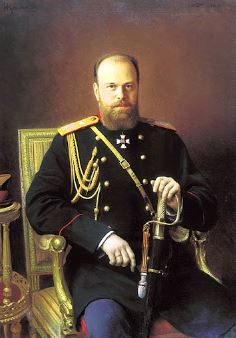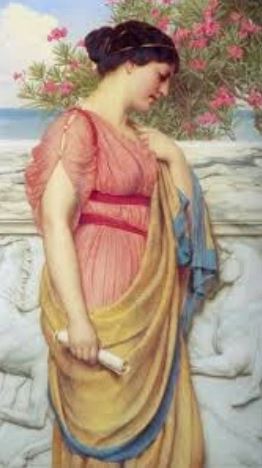Alexander III of Russia, also known as Alexander Alexandrovich Romanov, ruled as Emperor of Russia from 1881 to 1894. His reign is often remembered for its conservative policies and emphasis on autocracy, but it also marked a period of relative peace and stability in the Russian Empire. This article delves into the life, reign, and legacy of Alexander III, shedding light on the impact of his policies and the era he shaped.
Early Life and Background
Born on March 10, 1845, in Saint Petersburg, Alexander was the second son of Emperor Alexander II and Empress Maria Alexandrovna. As a child, Alexander was not expected to ascend to the throne, as his elder brother, Nicholas, was the heir apparent. However, the unexpected death of Nicholas in 1865 thrust Alexander into the position of Tsarevich, the title given to the heir to the Russian throne.
Alexander’s upbringing was strict, and his education was overseen by conservative tutors who instilled in him a deep sense of duty and loyalty to the autocracy. This upbringing would heavily influence his later policies as Emperor.
Ascension to the Throne
Alexander III became Emperor after the assassination of his father, Alexander II, in 1881. His father’s death profoundly impacted him, leading him to adopt a more conservative and autocratic approach to governance. Alexander III believed that his father’s liberal reforms, particularly the emancipation of the serfs and the establishment of local self-government (zemstvos), had weakened the autocracy and contributed to the rise of revolutionary movements.
Upon ascending the throne, Alexander III quickly reversed many of his father’s reforms. He dismissed liberal ministers, curtailed the powers of the zemstvos, and implemented policies aimed at strengthening the autocracy and suppressing dissent.
Domestic Policies: A Return to Autocracy
One of Alexander III’s most significant domestic policies was the implementation of the Counter-Reforms. These were a series of measures designed to roll back his father’s liberal reforms and restore the absolute power of the Tsar.
- Russification: Alexander III pursued a policy of Russification, aimed at promoting Russian culture and language while suppressing the cultural identities of minority groups within the empire. This policy was particularly harsh in regions such as Poland, Finland, and the Baltic provinces.
- Education and Censorship: The education system was brought under strict state control, with an emphasis on loyalty to the autocracy and the Russian Orthodox Church. Censorship of the press was also intensified, with any publications deemed subversive or critical of the government being banned.
- Police and Surveillance: Alexander III expanded the powers of the secret police, known as the Okhrana, to monitor and suppress revolutionary activities. Surveillance of suspected dissidents increased, and many were arrested and exiled without trial.
Foreign Policy: The Peacemaker Tsar
Despite his conservative domestic policies, Alexander III is often remembered as the “Peacemaker Tsar” due to his efforts to maintain peace in Europe. During his reign, Russia avoided involvement in major conflicts, and Alexander III worked to strengthen the country’s diplomatic relations.
- Franco-Russian Alliance: One of the most significant achievements of Alexander III’s foreign policy was the formation of the Franco-Russian Alliance in 1892. This alliance between Russia and France was aimed at countering the growing power of the German Empire and its allies. The alliance would later play a crucial role in the events leading up to World War I.
- Relations with Germany: Alexander III’s relationship with Germany was complicated. While he sought to maintain peaceful relations, he was wary of Germany’s growing military power under Chancellor Otto von Bismarck. This led to a cooling of relations between the two countries, though outright conflict was avoided.
Personal Life and Character
Alexander III was known for his strong, imposing physical presence and his straightforward, no-nonsense demeanor. He was deeply devoted to his family and preferred a simple, frugal lifestyle, in contrast to the opulence often associated with the Russian court.
He married Princess Dagmar of Denmark, who took the name Maria Feodorovna upon her conversion to Orthodoxy. The couple had six children, including the future Nicholas II, the last Emperor of Russia. Alexander III was a strict but loving father, and his family life was marked by deep affection and loyalty.
Legacy and Impact
Alexander III’s reign is often viewed as a period of stability and consolidation in the Russian Empire. His conservative policies ensured that the autocracy remained firmly in control, and his efforts to maintain peace in Europe prevented Russia from becoming embroiled in costly wars.
However, his reign also laid the groundwork for the challenges that would face his successor, Nicholas II. The suppression of political dissent and the lack of meaningful reforms contributed to growing unrest and dissatisfaction among the Russian people. These tensions would eventually erupt into the Russian Revolution of 1917, leading to the downfall of the Romanov dynasty.
Alexander III of Russia was a complex and multifaceted ruler. While his conservative policies and emphasis on autocracy may seem out of step with the modern world, they were rooted in a deep sense of duty and a desire to preserve the Russian Empire. His reign, marked by peace and stability, was a respite in the turbulent history of Russia. Yet, it also sowed the seeds of future unrest, illustrating the delicate balance between order and change in the life of a nation. Alexander III’s legacy continues to be debated by historians, but there is no doubt that his reign left an indelible mark on the history of Russia and the world.




